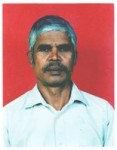An Editor is arrested in Kerala, but no one notices

It was on December 19 that the Kerala police arrested P Govindan Kutty, the 68-year-old editor of a pro-Maoist monthly, the People¿s March, from his small office at a lodge in Trikkakkara near
Govindan Kutty has been on an indefinite fast in jail from the day of his arrest, alleging that even the minimum legal procedures with regard to arrest were ignored in his case and the basic rights of a prisoner such as access to a lawyer had been denied to him. When he was arrested and remanded to the Alwaye Sub-Jail, the authorities had insisted that he could talk to his lawyer only in the presence of the jail officials.
Govindan Kutty has been a government servant for some time but later on he came in contact with the Maoist thinking in Andhra. He came to Kerala five years ago and launched his small publication, which is sold only a few hundred copies in various parts of Kerala and outside. It has never been proceeded against, and he runs it with all legal requirements like registration with the Newspaper Registrar of India and has permission to post his magazine at concession rates with the postal department.
The charges now framed against Govindan Kutty are under Sec.134, 124 A, 133 B, of IPC and under the 1967 Unlawful Activities (Prevention) Act, which is normally used against criminal elements like goons and never against a media-person. One of the main charges against him is that in his magazine, he wrote an article some five years ago hailing the attack on the then Andhra Pradesh chief minister Chandra Babu Naidu by some Maoist groups.
The arrest and the consequent developments raise a number of disturbing questions. One is the palpable intolerance being shown by the police and the present government in Kerala towards any kind of dissenting views. The second is the scant respect for human rights and the fundamental rights of every citizen, including prisoners. The third, is the selective and arbitrary manner in which the civil society in Kerala, including intellectuals and mainstream media, seem to behave even on issues where violation of fundamental rights are involved.
Govindan Kutty¿s arrest comes as a sequel to the arrest of two Maoist activists Malla Raja Reddy and Suguna, a tribal woman, who were whisked away by a team of Andhra policemen from a public road in Angamally, near Alwaye, at
Such secret police raids seem to have become a routine affair, as earlier this year, on June 22, another Maoist, Raja Mouli, had been forcibly taken hostage by a group from Andhra Pradesh from the Kollam railway station in south Kerala. He was not produced in any court and his body was recovered two days later from Andhra Pradesh.
The Kerala police pounced upon the offices of Govindan Kutty alleging that he was involved in the Malla Raja Reddy affair, helping him find a shelter in Kerala. But they could not find any evidence to prove this allegation and hence the decision to charge him for his writings in the magazine five years ago.
The reports about the arrest in the mainstream Malayalam media also raise some very disturbing questions. The police stories about his personal life, his estrangement with his wife and family, etc, were carried without giving his version at all. What was going on in the first few days after his arrest was a media campaign sponsored by the unknown sources in the police which vilified the man as a demon.
There were only a few exceptions. Madhyamam, a newspaper run by a trust supported by the Jamaat-e-Islami, and Thejas, a recently launched newspaper supported by the National Development Front (NDF), carried reports that spoke about the violation of rights in the case of Govindan Kutty. They spoke to him and took his version of the story, highlighting the blatantly false claims made by the police.
In Kerala the Left governments seem to be more prone to this kind of irrational onslaughts against the media. A few years ago, police under the LDF government led by E K Nayanar had ransacked the offices of Crime, a small publication from Kzohikode, on orders from the chief minister¿s office following a complaint from a Congress MLA. The police had arrested the editor T P Nandakumar and had forced the closure of his office taking away computers and other equipment. It was again the Nayanar ministry in 1986 that arrested P M Antony, a writer and theatre activist, for staging his controversial play, The Sixth Sacred Wound of Christ, raising a big hue and cry from the intellectuals. Now even as the police behave in an unruly manner, there is no such protest from the media and civil society, raising genuine apprehensions about the state of health of Kerala¿s civil society itself.